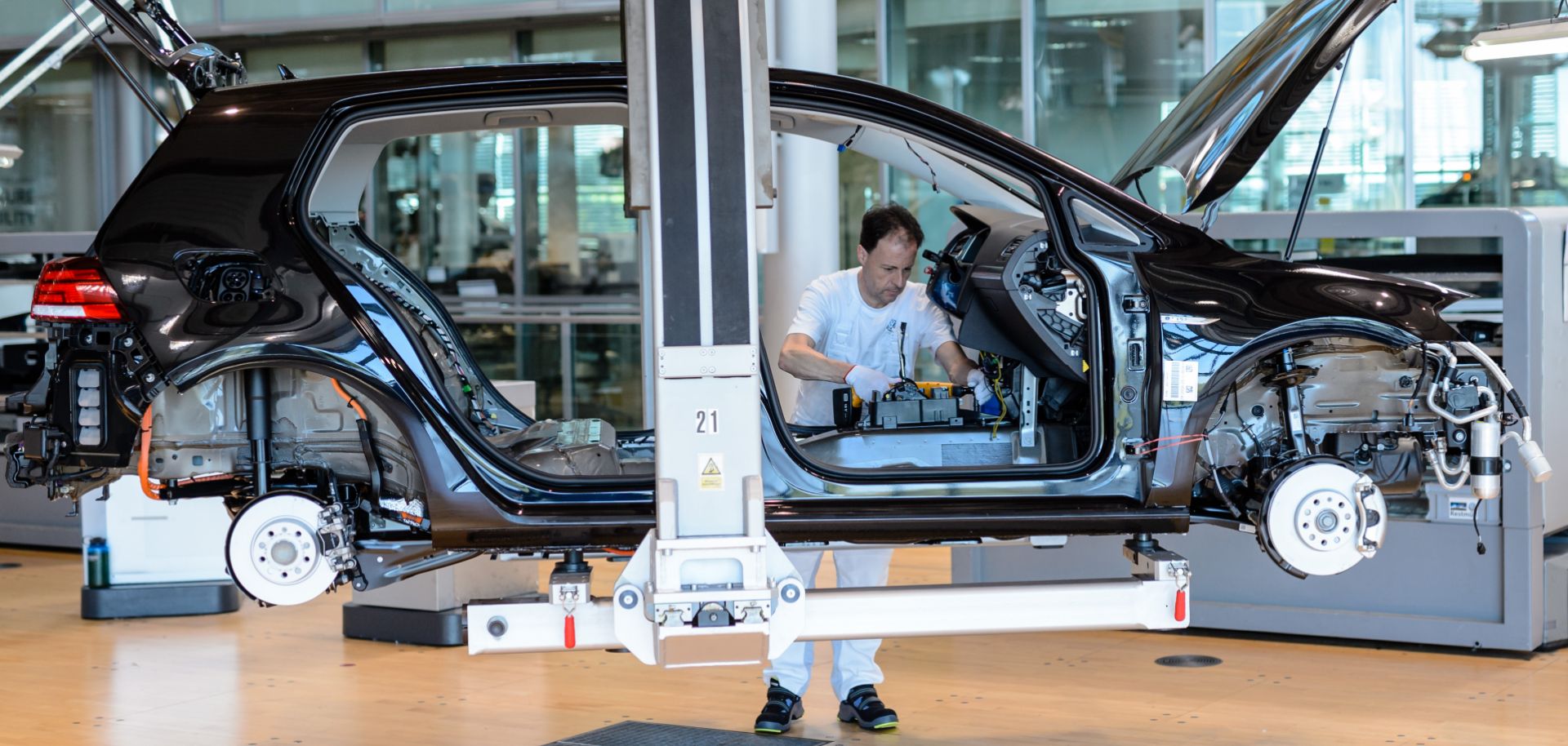ASSESSMENTS
Electric Vehicles Reach a Crossroads
Oct 1, 2018 | 09:00 GMT

An employee works on a Volkswagen e-Golf electric automobile on the assembly line inside a factory on May 8 in Dresden, Germany. Car manufacturers have some major decisions to make about the future of electric and automated vehicles.
(JENS SCHLUETER/Getty Images)
Highlights
- Tariffs will likely hurt the bottom line for manufacturers of electric vehicles, as well as their batteries, in the United States.
- The current trade uncertainty will have a major effect on many manufacturers' decisions on where to locate production in the future.
- The continued deterioration in the trade relationship between the United States and China could push Brussels and Beijing closer together, leaving U.S. companies isolated.
- Intellectual property rights will affect the development and emerging partnerships in the development of automated vehicles.
Subscribe Now
SubscribeAlready have an account?
